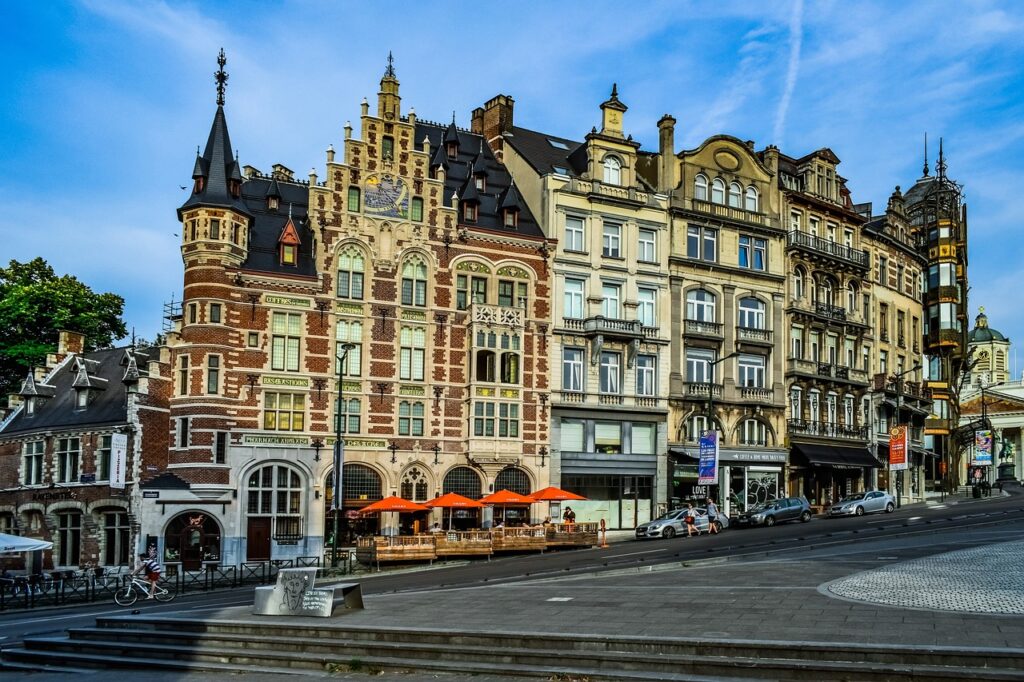In the heart of Europe, Brussels stands as a city of unparalleled diversity and dynamism. However, beneath its vibrant surface, a pressing issue looms—housing. A recent study commissioned by Brussels Housing Minister Nawal Ben Hamou unveils a critical shortage of approximately 4,500 homes, a figure that, while significant, challenges the often more dire predictions previously voiced.

Innovative analytical model sheds new light
Researchers from the Université Libre de Bruxelles (ULB) and Vrije Universiteit Brussel (VUB) have developed a groundbreaking analytical model to explore this issue. By integrating various databases with sophisticated algorithms, the team embarked on a mission to estimate the number of vacant properties across the region. Their findings suggest that between 17,000 and 26,400 homes remain unoccupied, with around 10,000 of these classified as potentially "suspicious" for various reasons.
Thorough verification yields surprising results
A meticulous verification process was conducted on a randomly selected but demographically representative sample of 5,000 addresses. This effort, spearheaded by the regional administration, aimed to refine indicators of residential vacancy. The final estimates of vacant homes ranged from 0.7% to 4.6% of the total housing stock. The proportion of vacancies deemed "punishable" under Brussels’ housing code ranged from 0.2% to 1.8%, equating to 720 to 9,000 housing units. This revelation underscores the complexity of defining and addressing housing vacancies within the urban context.
Unpacking the housing shortage
The disparity between the number of unoccupied homes and the perceived housing shortage raises critical questions about the nature of housing demand and supply in Brussels. It highlights the need for targeted policies that address the specific types of housing shortages, rather than a one-size-fits-all approach.
The findings also emphasize the importance of identifying and repurposing vacant properties to alleviate the housing shortage. This could involve renovating derelict buildings or converting non-residential properties into homes, strategies that require a cohesive effort from policymakers, developers, and the community.
The path forward: policy and participation
In response to the study’s findings, there is a clear call to action for both government officials and the private sector. Policies aimed at reducing the number of vacant properties, through incentives for renovation and penalties for prolonged vacancy, could play a pivotal role in addressing the shortage.
Furthermore, encouraging public participation in identifying and reporting vacant homes could enhance the effectiveness of these policies. Community-driven initiatives, supported by digital platforms for reporting and tracking vacant properties, may offer a way to bridge the gap between policy and implementation.
Conclusion: a call to action for Brussels
The revelation of Brussels facing a real shortage of 4,500 homes, while less dire than previously thought, nonetheless presents a significant challenge. It calls for innovative solutions that not only address the quantity of housing but also improve its quality and accessibility for all residents. By leveraging the findings of this study, Brussels has an opportunity to pioneer new approaches to urban housing, setting a precedent for cities worldwide facing similar challenges.
In the end, the journey toward resolving Brussels’ housing shortage is not just about filling a numerical gap. It’s about creating a city that embodies inclusivity, sustainability, and resilience—a home for everyone. This goal, while ambitious, is within reach through collaborative efforts, informed policymaking, and a shared vision for the future of Brussels.

 Open Immovlan
Open Immovlan